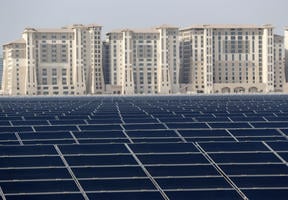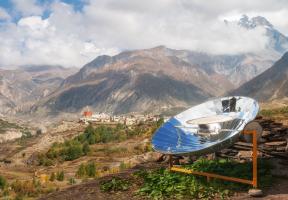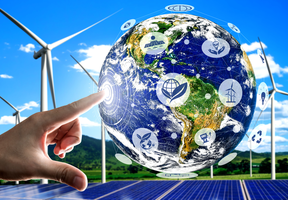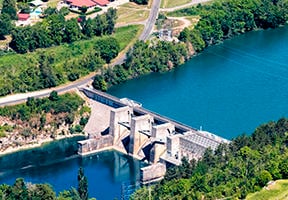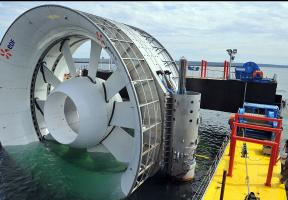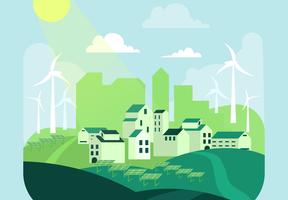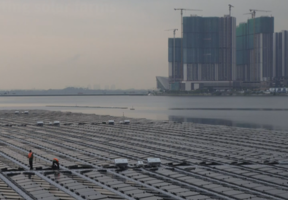COP26: what is it?
Published on 10.26.20215 min read
Glasgow in the United Kingdom will host the COP26 from October 31 to November 12, 2021. The "Conference of Parties" brings together every year the 197 signatories of the United Nations Convention on Climate Change. The climate is everyone's business: thousands of representatives of regions, cities, companies, NGOs and citizens' associations are also participating to the summit.

© ukcop26.org
Why is it important?
Postponed by one year because of the COVID pandemic, COP26 is particularly important because it marks the first step of 5 years after the Universal Climate Agreement signed at the COP21 in Paris in December 2015. It had set the goal of keeping
below 2°C, and even ideally below 1.5°C, by the end of the century.
Are we on the right track?
Not exactly... The average temperature of the planet has risen by 1°C compared to the pre-industrial era, i.e. in about 150 years. The latest report by the IPCC, the world's scientific body on climate, is formal: if we do not make additional efforts, we will be at +1.5°C before 2040 and up to +3°C in 2100. We are therefore far from the maximum 2°C limit of the Paris Agreement.
What actions remain to be taken?
We need to reduce greenhouse gas emissions (especially ), which means reducing energy consumption in transport, housing and food, improving , gradually breaking away from fossil fuels and developing innovative technologies. States must coordinate their efforts. In Paris, each of them committed to objectives. In Glasgow, these targets must be raised.
What commitments from the States?
The United Nations Secretary General, Antonio Guterres, has asked countries to do everything possible to reduce emissions by 45% by 2030 and to eliminate them completely by 2050. The European Union and the United States have already committed to "carbon neutrality" by 2050. China, the largest emitter in absolute terms, is promising it for 2060. This is going to be expensive: three times more investments in decarbonized energy projects in the next ten years.
What about developing countries?
Many countries, such as India or African countries, need energy for the well-being of their populations (food, education, health). They must find the way to a , with the financial aid promised by the richest countries, still very insufficient. And let's not forget the other planetary priority that is inseparable from the climate: the protection of with 1 million animal and plant species threatened with extinction.






